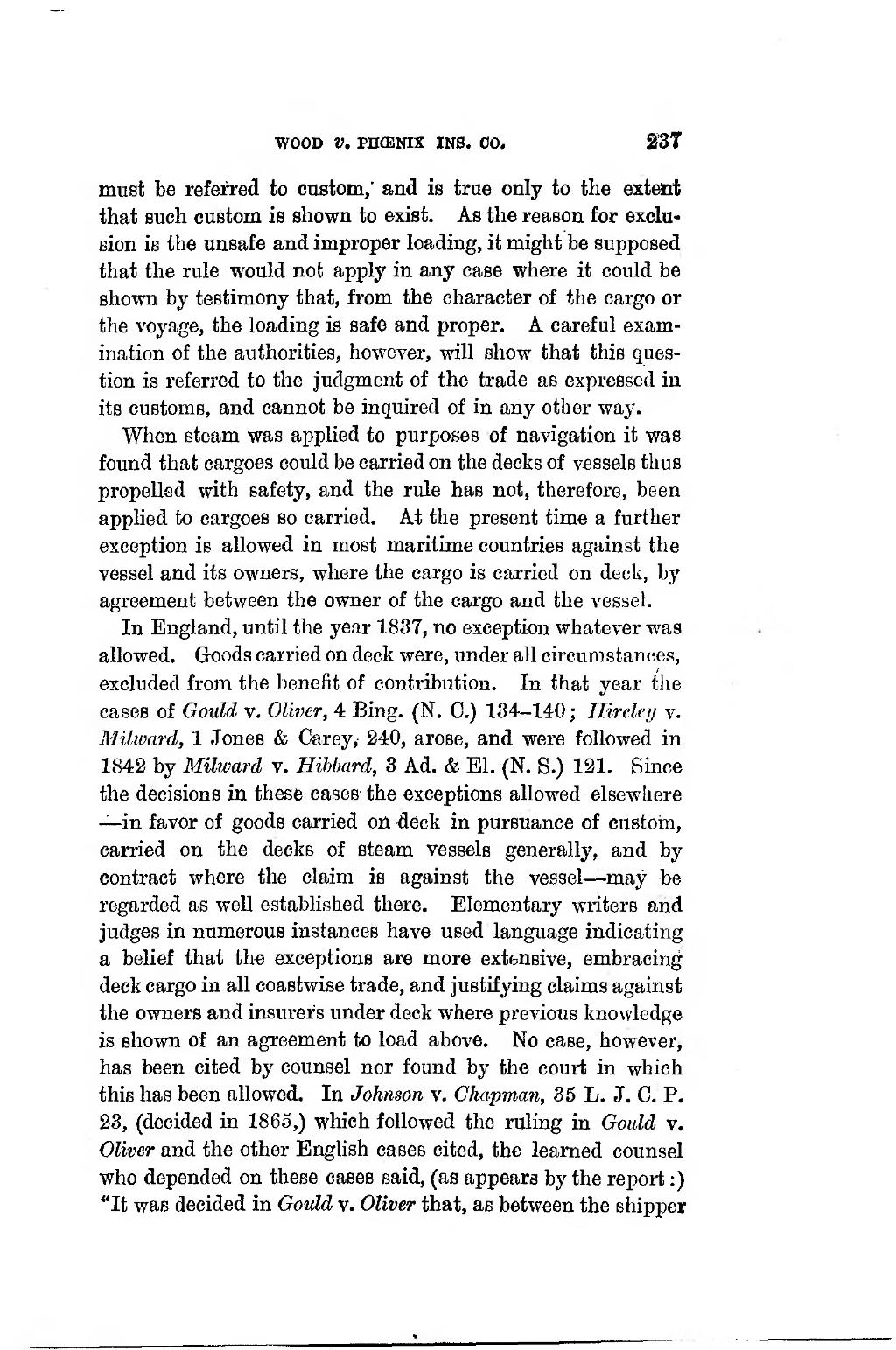WOOD V. PHCENIX INS. 00. 23T �must be referred to custoin/ and is true only to the estent that Bucli custom is shown to exist. As the reason for exclu- eion is the unsafe and improper loading, it might be supposed that the rule would not apply in any case where it could be shown by testimony that, from the character of the cargo or the voyage, the loading is safe and proper. A eareful exam- ination of the authorities, however, will show that this ques- tion is referred to the judgment of the trade as expressed in its customs, and cannot be inquired of in any other way. �When steam was applied to purposes of navigation it was found that cargoes could be carried on the decks of vessels thus propellad with safety, and the rule has not, therefore, been applied to cargoes so carried. At the present time a further exception is allowed in most maritime countries against the vessel and its owners, where the cargo is carried on deck, by agreement between the owner of the cargo and the vessel. �In England, until the year 1837, no exception whatever was allowed. Goods carried on deck were, under ail circumstances, excluded from the benefit of contribution. In that year the cases of Goiild v. Oliver, 4 Bing. (N. C.) 134-140; Ilirelcy v. MiUvard, 1 Jones & Carey,- 240, arose, and were followed in 1842 by Milward v. Hihhard, 3 Ad. & El. (N. S.) 121. Since the decisions in these caseS' the exceptions allowed elsewhere —in favor of goods carried on deck in pursuance of custom, carried on the decks of steam vessels generally, and by contraot where the claim is against the vessel— may be regarded as well established there. Elementary writers and judges in numerous instances have used language indicating a belief that the exceptions are more extensive, embracing deck cargo in ail coastwise trade, and justifying daims against the owners and insurers under deck where previens knowledge is shown of an agreement to load above. No case, however, has been cited by counsel nor found by the court in which this has been allowed. In Johnson v. Chapman, 35 L. J. C. P, 23, (decided in 1865,) which followed the ruling in Gould v. Oliver and the other English cases cited, the learned counsel who depended on these cases said, (as appears by the report :) "It was decided in Gould v. Oliver that, as between the shipper ��� �
Page:Federal Reporter, 1st Series, Volume 1.djvu/245
This page needs to be proofread.
